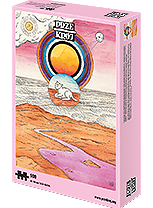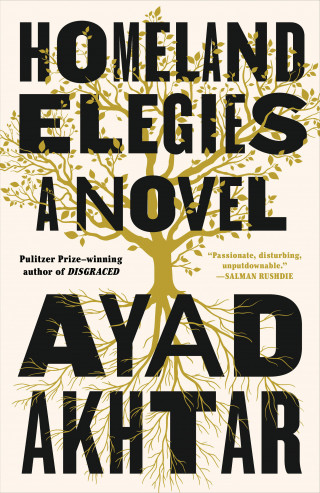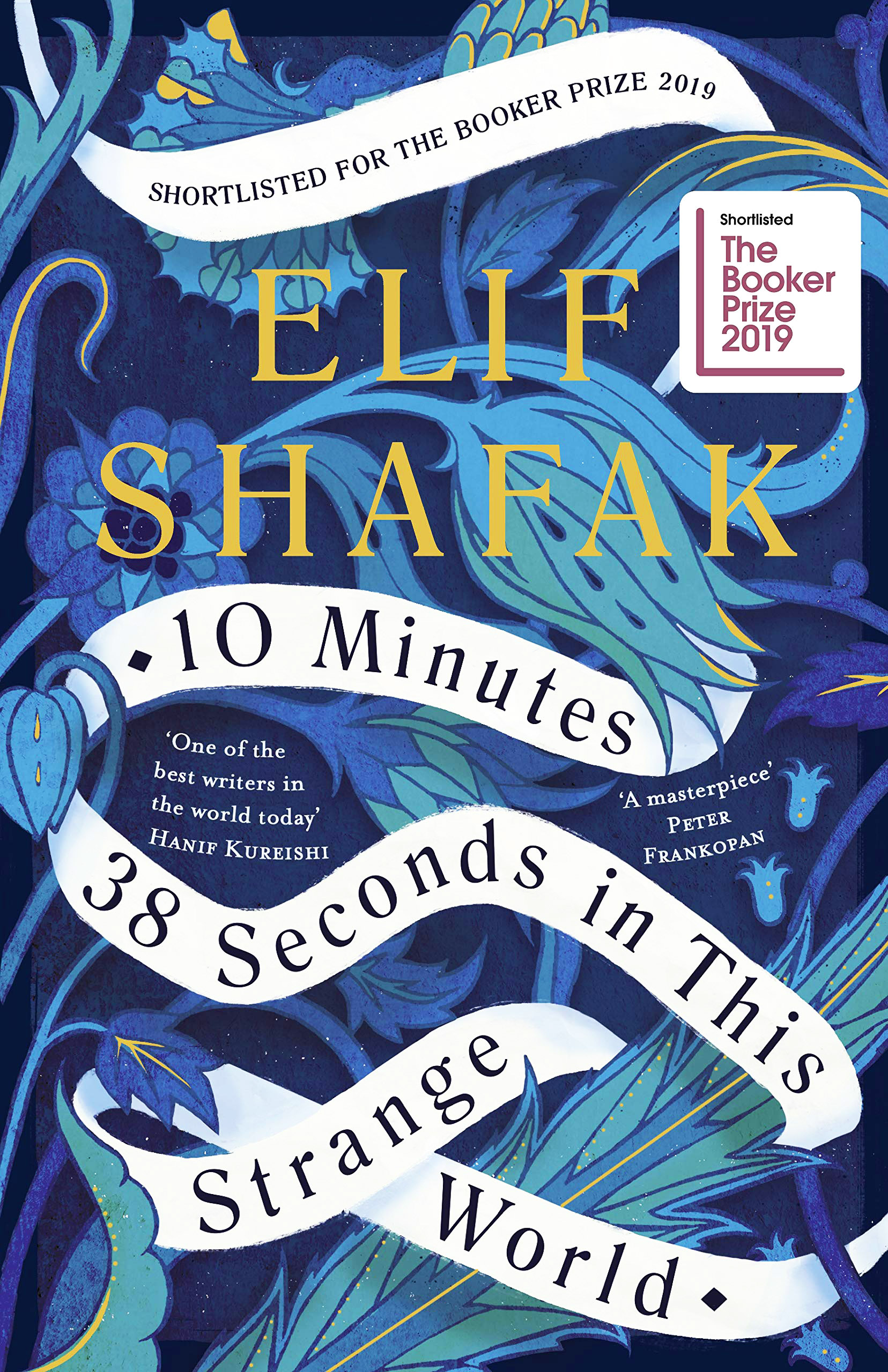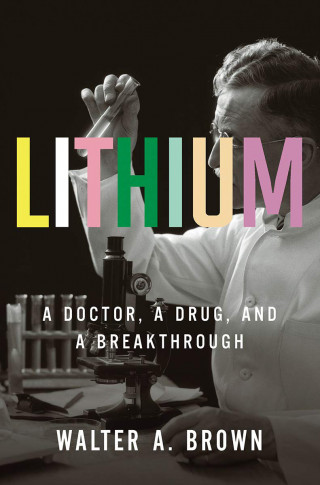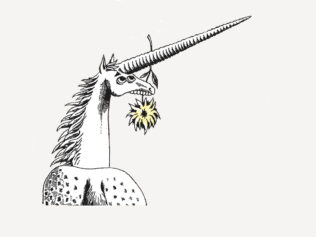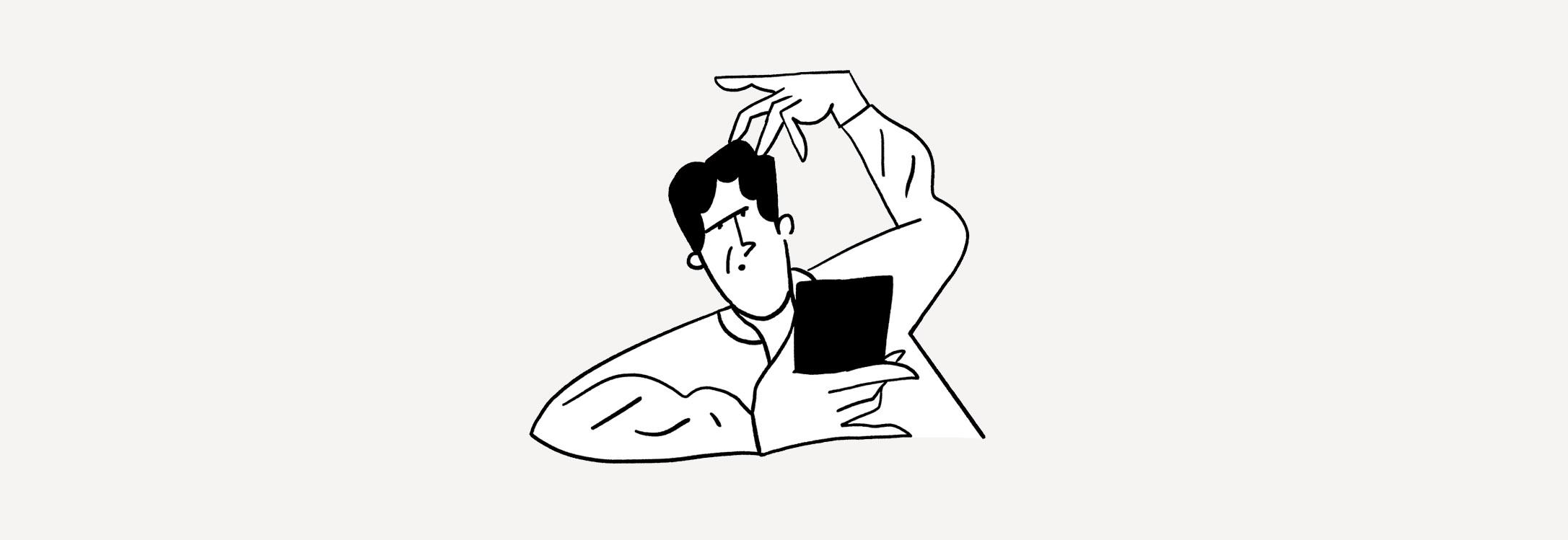
The United States is a bitter land. Born as a colony, deep down it remains one to this day. Its top priority – accumulation of wealth – was encased in the ideals of equality that were to remain of secondary importance forever. To strip America of its false promises, to expose its ruthlessness and only then, having done it all, declare his love for it – this is a feat that America’s unwanted son managed to accomplish.
To his homeland, Ayad Akhtar is a troublesome child. He does not fit. He doesn’t match the stereotypes that arrange the world into various xenophobic categories, but he doesn’t fall into the slot reserved for those basking in the American Dream Fulfilled, either.
Akhtar comes from a Muslim family, is dark-skinned and has a Pakistani surname. But he was born in Staten Island, raised in Wisconsin. He is successful; his plays premiere on Broadway, and he has received a host of accolades, including the Pulitzer Prize, the Arts and Letters Award in Literature, and two Tony Award nominations. Each of Akhtar’s new works makes waves in literature and theatre. The only problem is that he doesn’t try to woo America in them. He addresses his reservations, tears down the neat facades, picks at the old wounds. Many would prefer for him to just “shut the hell up” and “go back to where he came from”. So where, exactly?
Recently published in the US, Homeland Elegies is the second novel by this exceptionally gifted playwright and author. It is a confession of love and loyalty to the only country in which he can live and fully self-realize as a constantly emblematized and limited being, always alternately elevated or degraded, appreciated or excluded. Every identity is complex, and therefore doesn’t fit the contemporary reality that pushes for radical simplification. We live in a civilization of the banished, created by the migrating Homo sapiens species, thus by visitors. And yet we keep blacklisting other people. We erect strongholds of the exclusively sanctioned perspective, and push everyone else into their own forts, preferably located very far away. Ayad Akhtar has written a novel that is American to the bone while keeping it undeniably global, centred around how we choose to sell the subtlest of our most elementary particles: the sense of belonging. In a polarized world, cynically divided by political narratives, any one of us can feel unwanted and cast out from their own home – the only environment in which they know how to be themselves. Each and every one of us is the representative of an endangered species.
Homeland Elegies, just like the title suggests, is a multi-layered farewell. Akhtar wrote the book when grieving the death of his mother – a woman who never stopped missing her home in Pakistan. To her, half a century of a relatively comfortable life in America was still not enough to make up for the losses she suffered as a result of emigration. At the same time, the author’s father – a renowned doctor running his own practice, a relentless fan of the United States – began to “fall apart”. His life, previously filled with work and meaning, was now quickly disintegrating, along with his worldview and perspectives on his own choices and his adopted homeland. In the background, we watch the disintegration of America itself, especially the layers of ideals that coat the nation’s economic DNA; those two inseparably twisted threads of debt and profit.
The plot, camouflaged as Akhtar’s autobiography and heavily deformed with numerous distortions of real-life events, takes place roughly between the World Trade Center attacks and Donald Trump’s first term in the presidential office. This period, spanning almost two decades, brings drastic political change. The story America spins about itself and its role in the world has been rewritten. The author also redefines the place his country offers – and the place it refuses – to its citizens, especially those with names that are difficult to pronounce and whose skin colour is not white.
Akhtar registers those changes in detail, presenting them in precisely-drafted scenes of meetings and conversations. When his character (also serving as Akhtar’s literary alter-ego) was still at university, he began applying the method designed by the French psychoanalyst Jacques Lacan. He would go to sleep with a pencil tied to his hand, in order write down his dreams immediately after waking up. The main character, however, expands this method and also begins precisely noting everything that happens to him on any given day each evening. He does it meticulously, with devotion, desperately wanting to remember and preserve the fading world that has shaped him.
Suppose you’re wondering what happened to America and how on Earth it managed to go from the multiethnic ideals of the United Colors of Benetton campaign to the Trumpian fake-politics show of populism and discrimination. Akhtar takes you on a trip across episodes in which, like a cardiologist patiently comparing ECG diagrams, he extracts those minute twitches and creases that contain the answers we seek. He does it by describing his various encounters; for example, one from 9th September 2001. Seeing the reports of the moment when a plane hit the second tower, the main character feels an overwhelming need to be closer to what just happened. He walks down the streets of Manhattan, experiencing the new kind of stares following him; stares heavy with accusations and fear. He also catches himself thinking that the act of violence was committed by people whom he – a descendant of Pakistani immigrants, a non-believing and non-practising Muslim – reflexively refers to as ‘us’. He joins a spontaneously-formed queue for blood donations when he falls victim to an assault. Realizing that he is now perceived as ‘one of them’ – meaning a terrorist – he experiences a new kind of primal fear for the first time in his life; his trousers soak up warm urine. This moment foreshadows a shift in mentality.
Several years later, when travelling across a state road, he will be stopped by a young, white policeman who notices the writer’s car has a faulty radiator. He recommends a garage nearby, and while they wait for a car carrier, he asks a few questions. About his ‘strange-sounding’ surname, his parents’ country of origin, his place of birth. It turns out that the garage is run by the policeman’s uncle, who takes such thorough care of the vehicle that covering the bill forces the man into debt. The author swallows the thinly-veiled humiliation heftily priced at $1600 and goes on.
Muslims and their descendants aren’t only the victims here – Akhtar shows how they contribute to the landscape of omnipresent tension. In the theatre, where his new play is being rehearsed, the narrator meets an ultra-wealthy American Muslim who has decided to fight racism with its sharpest sword: money. For a short but very prosperous moment, Akhtar finds himself in the circle of an immigrant-based financial elite who, perversely, take their revenge with money and generosity. They build up their fortunes and positions by employing the white-people methods: cynical stock-market gambles and prominent charity donations. This way, they insure themselves against any harm in the country that loves nothing as genuinely as it loves money.
The author makes incisive observations about the fact that not only white conservatives perceive the world in the polar categories of ‘us’ versus ‘the other’. The immigrants themselves, such as his paradoxically pro-American and pro-Trump father, have never grown out of their dreams of becoming Americans. Their wish did not come true; they have remained strangers. The Muslim community lives in a country shaped by Christianity and corporate logic, and they separate themselves from both of those orders, which they ultimately find foreign. At the same time, the history of American violence in Iraq and Afghanistan becomes part of their scarred biography, a chapter in the tale of the harm done to their brothers who remained ‘there’. They have their reasons to grow spiteful of ‘American values’. There is a chasm gaping between them and the country in which they live.
But the second generation, to which Ayad Akhtar belongs, tell a different story. He doesn’t miss the mango orchards or the family land in Pakistan that his father still considers an emergency escape route. Akhtar does not have the privilege of escaping back into the past. After all, his entire history unfolded here, in the land that lies between the Atlantic and the Pacific. And while he did not follow in the footsteps of his father – a doctor – he now carefully examines the symptoms presented by his homeland. When diagnosing its complex affliction, Akhtar isn’t deluded with hopes of finding any cures; in the elegy of an immigrant, the ability to discern between truth and illusion is a measure of progress. Just like the ability to accept contradictions is the key to surviving in the 21st century.
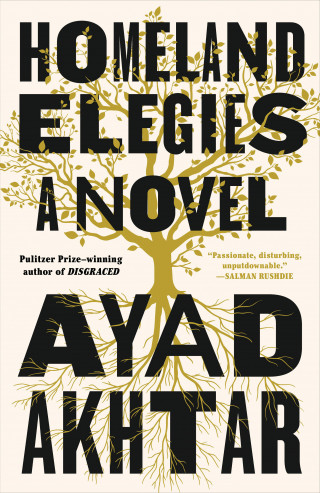
Translated from the Polish by Aga Zano

